Are you considering engaging a private investigator but unsure where to start? Crafting a clear and concise authorization letter is essential to ensuring the investigation proceeds smoothly and legally. In this article, we'll break down the key elements needed in your letter while guiding you through the process step by step. So, let's dive in and empower you with the knowledge to navigate this often-overlooked aspect of private investigations!

Client and investigator contact details
Private investigation authorization requires clear and precise communication between the client and the investigator. Essential details include full name, address, and phone number of the client, along with the investigator's contact information--license number, business address, and phone number. The authorization must outline the scope of the investigation, including specific individuals, locations, or events of interest. Noteworthy dates for initiation and expected duration of the investigation should also be included, as well as a declaration of understanding regarding confidentiality and compliance with local laws. This structure ensures that both parties maintain transparency and legal protection throughout the investigative process.
Specific scope and objectives
Private investigation authorization requires clarity in scope and objectives. This encompasses detailed outlines of the investigation parameters, such as specific behaviors, actionable locations, and potential subjects of interest. Often, investigations may target locations like corporate offices in Manhattan or private residences in suburban areas. Objectives could emphasize uncovering financial discrepancies, suspect activities, or personal matters like infidelity. Precise timelines--such as a four-week monitoring period--should also be established. The mention of surveillance techniques, such as video recordings or social media analysis, may enhance the authorization document's thoroughness. Clear definition of intended findings and reporting methodologies adds to the effectiveness of the investigation's scope.
Confidentiality and privacy clauses
Confidentiality and privacy are crucial elements in private investigation authorization documents. This ensures that sensitive information, such as personal details and findings, remains secure and protected. Definitions of confidential information may include names, addresses, financial records, and any other data linked to the parties involved. A clear articulation of the privacy clauses must specify the restrictions on the sharing of this information, including limitations on disclosures to third parties without prior consent, except as mandated by law. Additionally, detailed procedures for data storage and destruction are fundamental to safeguarding privacy, as well as stipulations for the duration that confidentiality obligations last, often extending beyond the completion of the investigation. Overall, these elements create a robust framework for maintaining trust and integrity in the investigative process.
Legal compliance and limitations
Private investigation authorization involves careful legal compliance and acknowledgment of limitations in various jurisdictions. The legal framework governing private investigations varies significantly; for example, states like California require specific licenses for private investigators, whereas other regions may have less stringent requirements. Furthermore, investigators must adhere to laws pertaining to privacy, such as the Health Insurance Portability and Accountability Act (HIPAA) in the United States, which regulates the disclosure of medical information. Investigators are typically prohibited from engaging in unlawful surveillance, accessing private records without consent, and utilizing deceptive practices that might violate ethical standards. Thorough understanding of these legal boundaries ensures compliance, protects the rights of individuals being investigated, and allows investigators to operate within the confines of the law.
Authorization and signature
Private investigation authorization is a critical process that enables investigators to perform their duties legally and ethically. This authorization typically includes essential details such as the names of involved parties (individuals or organizations), the scope of investigation (like surveillance or background checks), and specific permissions granted to the investigator. Additionally, a signature from the authorizing party is necessary to validate the authorization, which serves as proof of consent. It's also important to include the date of authorization to establish a timeline for the investigation process. The document may be required in various situations, including legal cases or personal matters, emphasizing the need for clarity and thoroughness to avoid potential disputes.
Letter Template For Private Investigation Authorization Samples
Letter template of private investigation authorization for legal purposes.

Letter template of private investigation authorization for personal safety.
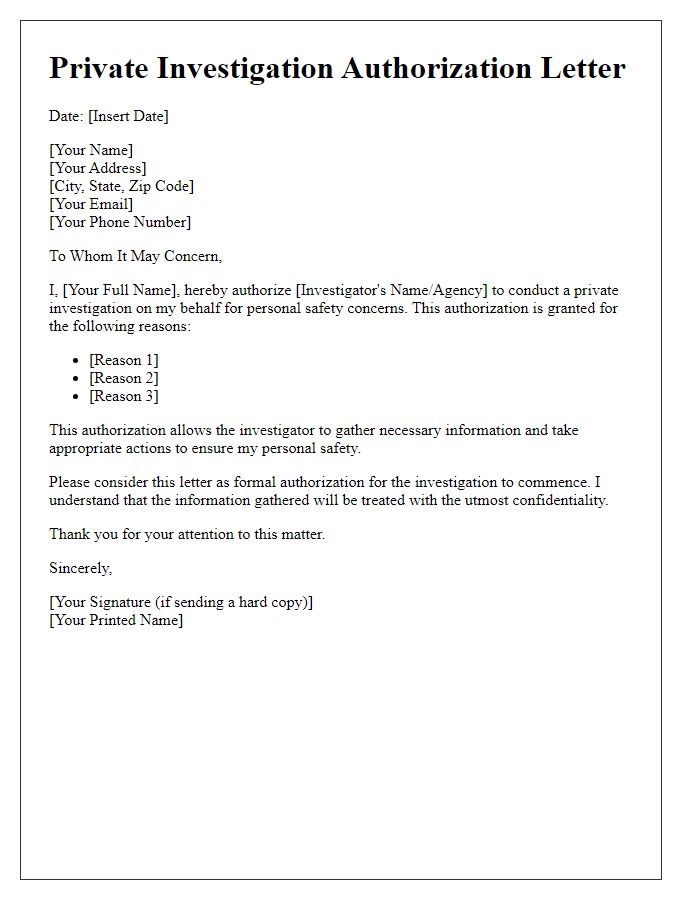
Letter template of private investigation authorization for insurance claims.
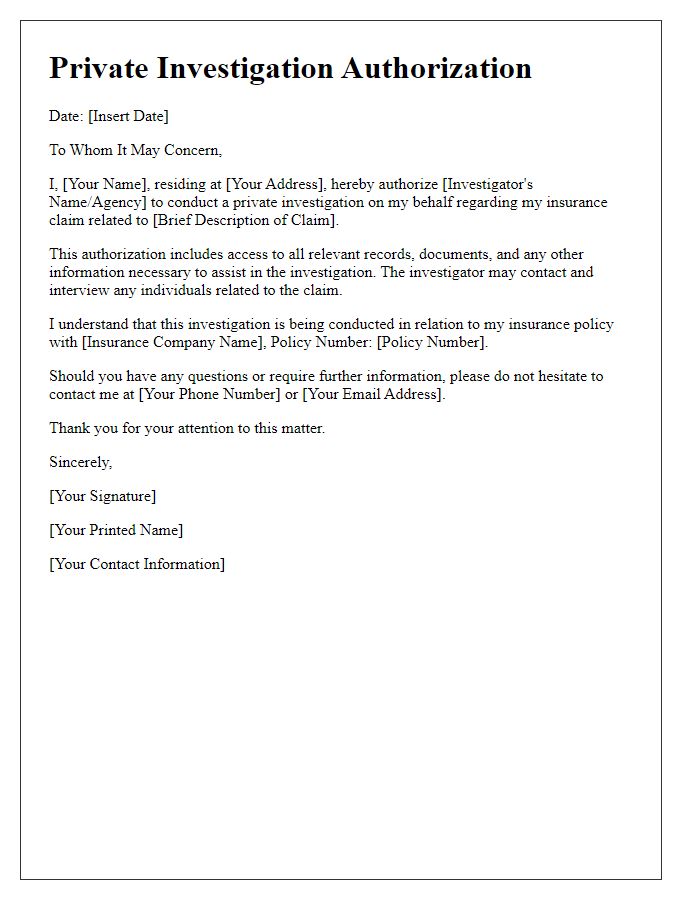
Letter template of private investigation authorization for custody disputes.
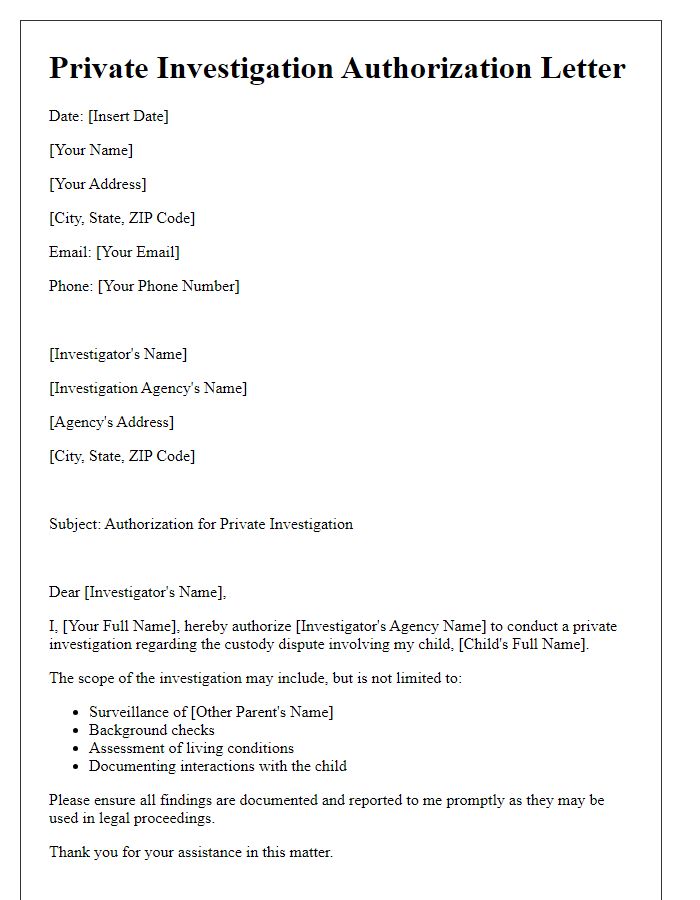
Letter template of private investigation authorization for corporate espionage.
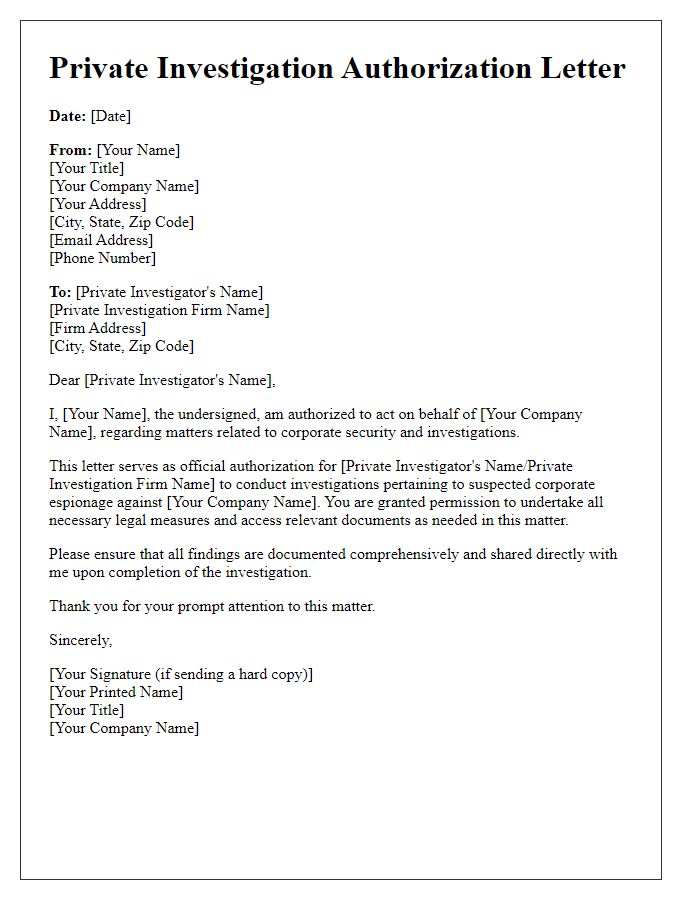
Letter template of private investigation authorization for fraud investigations.
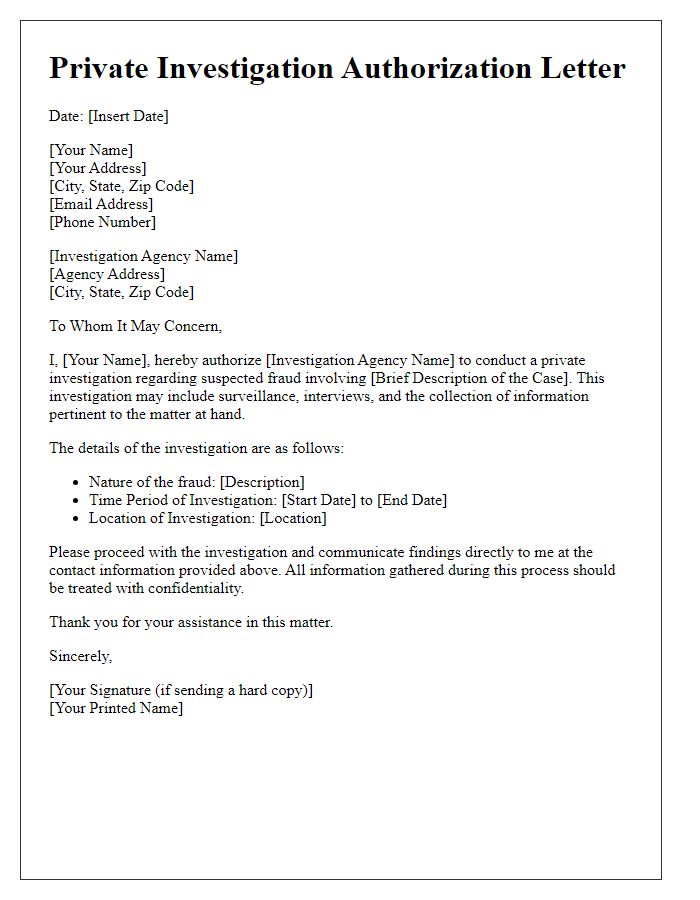
Letter template of private investigation authorization for missing person cases.
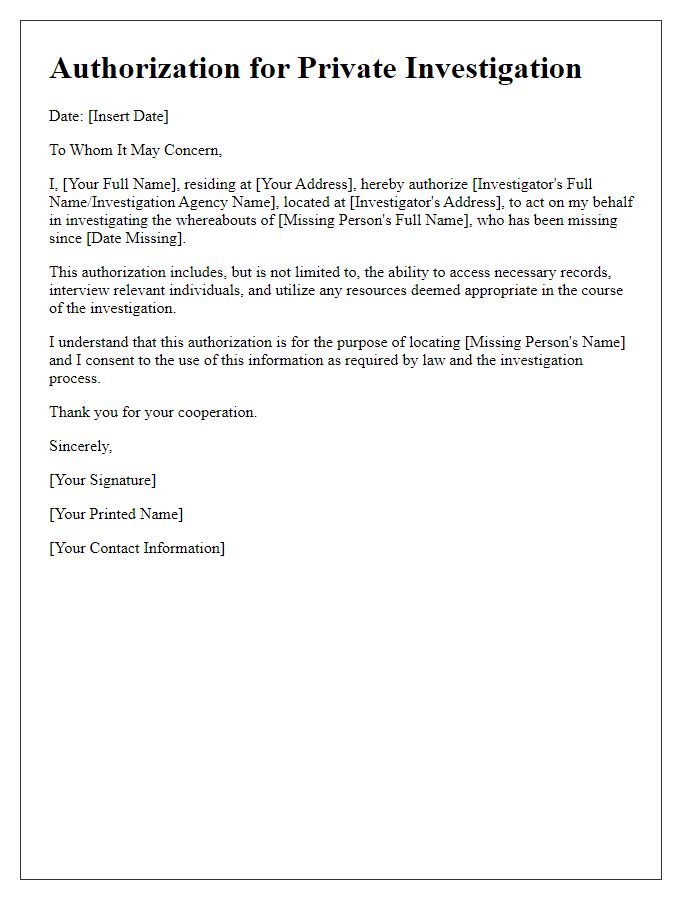

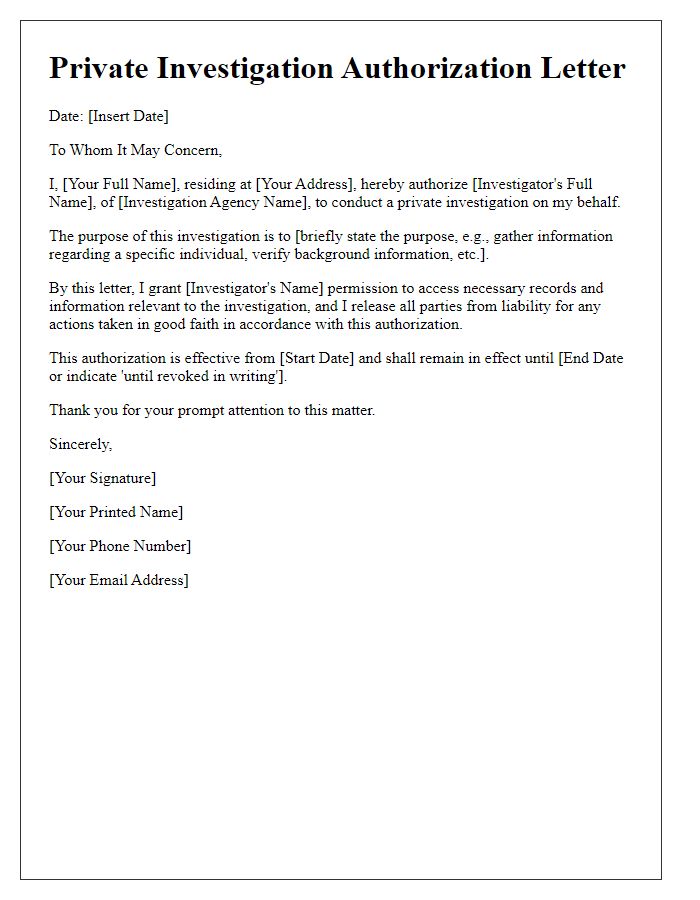
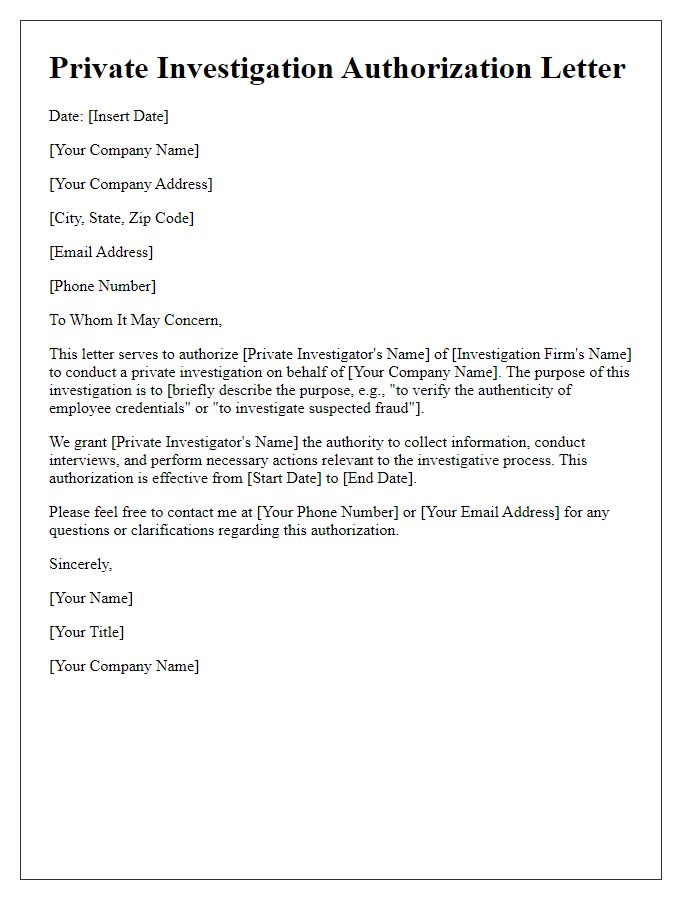
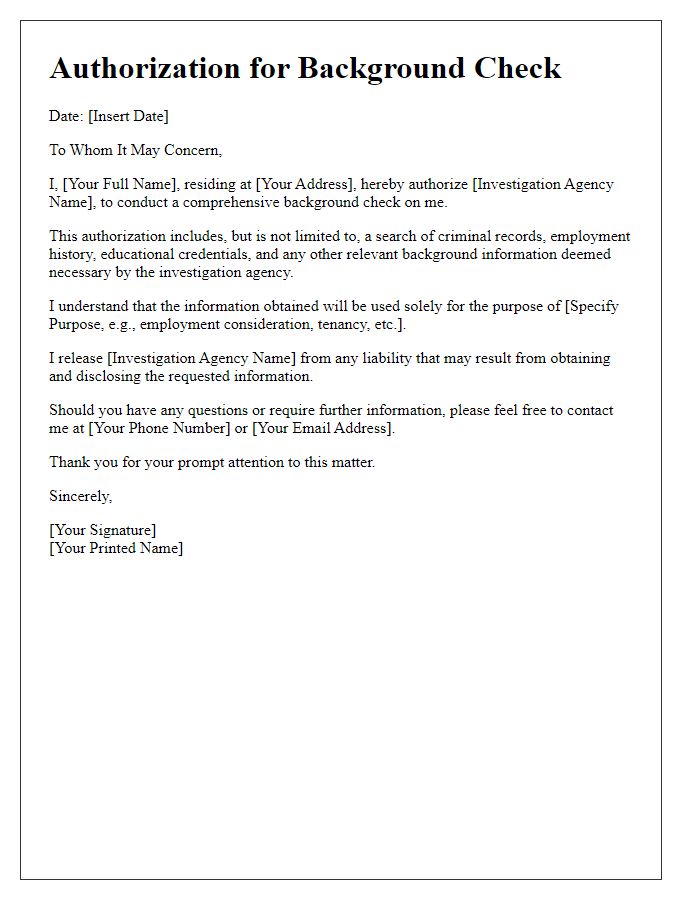

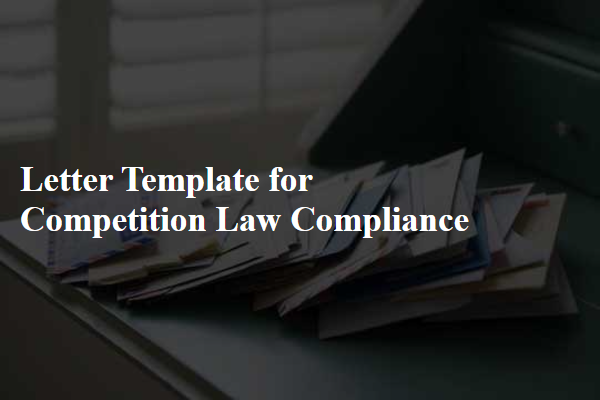
Comments